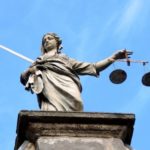We run our website the way we wished the whole internet worked: we provide high quality original content with no ads. We are funded solely by your direct support. Please consider supporting this project.

Jesus’ Kind of Social Justice
For many, the primary way of building the kingdom is to influence politics in order to make America more Christian. Others take the opposite approach, concluding that Jesus didn’t try to overhaul the political systems of his day through political means; therefore Christian faith is only a private matter that has no social relevance. Both approaches get it wrong.
Because Jesus did not allow the society or politics of his day to define his ministry, he positioned himself to make a revolutionary prophetic impact upon his society and the politics of the time. Jesus did not buy into the limited options the culture placed before him. He rather exposed the ugly injustices in all kingdom-of-the-world options by offering a radically distinct alternative.
For example, Jesus never entered into the fray of particular debates about the status of women in society. He rather exposed the ugliness of patriarchalism by the countercultural way he treated women. Ignoring negative consequences for his reputation, Jesus befriended them and gave them a culturally unprecedented dignity.
In a similar way, Jesus did the same for social outcasts. He served lepers, the blind, the demonized, the poor, prostitutes, and tax collectors. His actions were a challenge to the inhumanity of social structures of the day that served as a mustard seed alternative that started small but grew slowly.
Jesus also exposed the inhumanity of certain religious rules, which was a political problem in the first century because religious leaders had political power. He exposed the evil of racial prejudice by fellowshipping with Samaritans and Gentiles, and he even praised them in his teachings. In addition, he healed and worked miracles on the Sabbath, something that religious leaders forbade.
Finally, Jesus exposed the barbarism of the Roman government by allowing himself to be crucified by them. Instead of using his power to preserve his life, he exercised the power of love by giving it.
The power of the kingdom is not one where Christians aim to attain “power over” like the kingdoms of the world. Instead, we exercise “power under.” We therefore must resist the demonic pull toward “power over” violence that characterizes all versions of the kingdom of the world. “Power under” unmasks the ugly injustice and violence that dominates our political and social systems and doesn’t wage war “against flesh and blood” but instead fights against “rulers, against authorities, against cosmic powers of this present darkness (Eph 6:12).
It is a beautiful kingdom that is not so much spoken as it is displayed through loving action.
Jesus called the church to be a community characterized by radical, revolutionary, Calvary-quality love: a community that manifests the love of the triune God; a community that strives for justice not by conquering but by being willing to suffer; a community that God uses to transform the world by providing it with an alternative to its own self-centered, violent way of existing.
How socially and politically revolutionary it would be if we lived up to our calling!
—Adapted from The Myth of a Christian Nation, pages 119-122
Category: General
Tags: Justice, Political Idolatry, Politics, Social Issues
Topics: Ethical, Cultural and Political Issues
Related Reading

Evangelism or Social Action: What’s the Priority?
Throughout the last century Evangelicals were known much more for their emphasis on personal piety than for their social action. This is fortunately beginning to change. Pioneers like Jim Wallis, Tony Campolo and Ron Sider have for decades been trying to get Evangelicals to see that the Bible mandates that followers of Jesus care for…

Does the Bible forbid interracial marriages?
Absolutely not! Racist Christians used to argue against interracial marriage by quoting Old Testament passages that prohibited Jews from marrying non-Jews. This prohibition had nothing to do with race, however. In fact, there was no concept of different “races” until white Europeans invented it during the Colonial period, partly to justify their enslavement of other…

Election Benediction
On this election day, when so many Americans are experiencing high levels of anxiety, I thought it would be good to share an “Election Benediction” that was written and sent to me by Kenneth Tanner. Let it ground you in the love, peace and security of Christ and his Kingdom. An Election Benediction By Kenneth…

Is Longing for Justice Inconsistent with Love? A Response to Paul Copan (#3)
In a paper delivered at the Evangelical Theological Society in November, Paul Copan spent a good amount of time arguing that aspects of the NT conflict with the understanding of love that I espouse in Crucifixion of the Warrior God (CWG). For example, Copan cites the parable Jesus told in Luke 18:1-8 about a widow…

Let’s Remember
In light of the events in the last few days involving attacks on American diplomats in foreign countries (and the ensuing political conflict), let’s remember one thing: Our fight is not with flesh and blood. As Christians, our real enemy is not Libyans or Egyptians or Muslims or President Obama or Governor Romney. Our enemy…

The Kingdom of God ≠ Political Activism
Given the centrality of following Jesus’ example, it is vitally important we not only notice that Jesus was a revolutionary (see post) along with some ways that we can join his revolution (see that post here), but how he was a revolutionary. Many Christians today assume that in order to revolt against ungodly aspects of…
